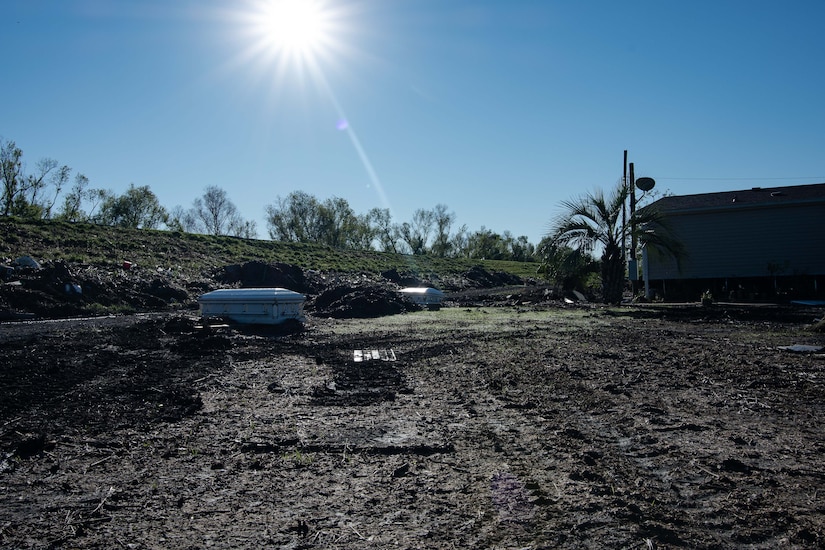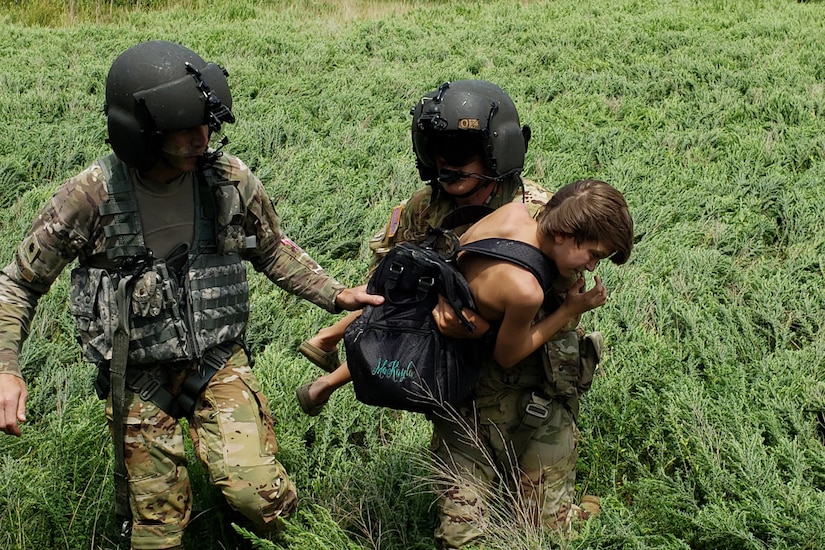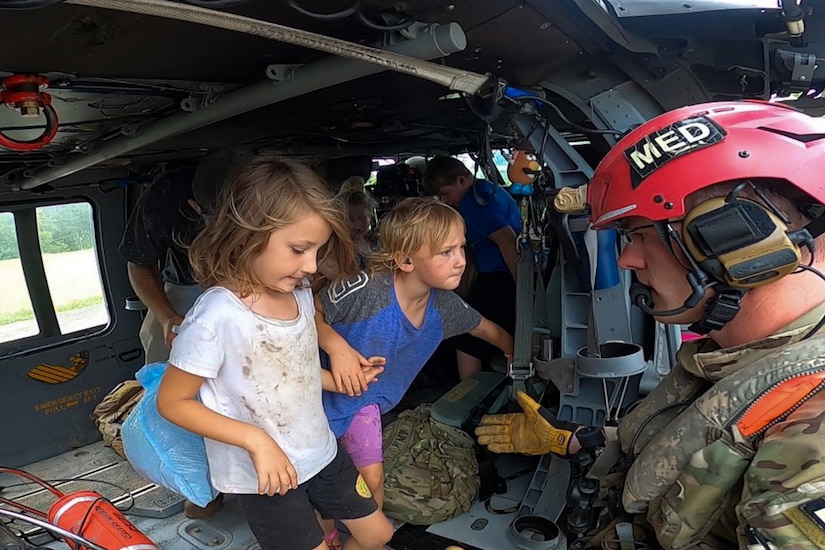The Earth is 1.1 degrees Celsius warmer than it was in the late 1800s. The last decade, 2011-2020, was the warmest on record. The increase in thermal energy being added to the atmosphere has had enormous consequences around the globe.
There are historic droughts in the Western United States and in the eastern countries of Africa. Desertification is expanding the Sahara and Gobi Deserts. The intensity and frequency of hurricanes, cyclones and typhoons have increased. Heat waves are longer and hotter. Forest fires are burning around the world.
The most recent examples are the heat dome over Europe, where London – the capital of a country where 85 degrees Fahrenheit is considered hot — had a temperature of 105 degrees, and the catastrophic flooding in St. Louis and Eastern Kentucky.
DOD must do its part, and Iris Ferguson is a focal point for the effort. Ferguson is the deputy assistant secretary of defense for Arctic and global resilience. She is the principal advisor to the secretary of defense and other senior DOD leaders for policy matters pertaining to Arctic security and global resilience. She is the policy maven for DOD efforts on climate adaptation, mitigation and energy resilience.
Climate change has already had profound impacts on the Defense Department. Tyndall Air Force Base, Florida, was hit by Hurricane Michael, a Category 5 storm, in 2018. The base lost at least half its buildings when the hurricane roared ashore. Reconstructing the critical base will cost more than $5 billion to repair, Air Force officials said.
Naval Station Norfolk, in Southern Virginia, is the largest U.S. Navy Base in the world. It is endangered by rising sea levels. A normal high tide comes close to lapping containment walls. Water in the bay has risen about a foot-and-a-half since the 1920s. The Navy, the city and businesses that depend on the harbor must work to mitigate this fact.
Finally, Offutt Air Force Base, Nebraska, was hit by a Missouri River flood in March 2019 that engulfed roughly a third of the base. The damage was so severe that many facilities at the base — the home of U.S. Strategic Command — must be rebuilt. The cost is estimated at more than $500 million.
The Pentagon office will work to ensure bases, posts and facilities are more resilient in the future. This could include retrofitting buildings to improve their ability to withstand natural disasters.
“We’re trying to talk about climate issues in a way that matters for the Department of Defense,” Ferguson said. “And we’re trying to talk about it in a way that matters to the warfighter.”
Service members will be affected by climate change. On one hand, service members — mostly National Guardsmen — will be called upon to respond to climate events in the United States. The droughts have made forests in the United States tinderboxes, and service members are often called to augment firefighters. Kentucky National Guardsmen are helping right now with the flooding in the eastern part of that state.
“For the department, it’s about looking at how we’re adapting to the changes to climate change globally — how we’re recognizing the fact that climate is a driving threat of instability globally,” Ferguson said.
As nations that become too hot for life or disappear because of sea level rise, climate change will spur migration. Nations and people will fight over scarce water sources. Climate change is already making the Arctic more accessible with nations vying over resources and access. As the atmosphere warms, diseases and viruses could also migrate to new areas of the globe.
Climate change will also affect the environments American service members must be prepared to deploy to and fight in.
Future Arctic combat will require equipment that can operate dependably in that environment. Climate change may also make amphibious operations more complicated than they already are. Sea and air lines of communication will change.
Combatting climate change is also part of the job, Ferguson said. New technologies, greener fuels, more use of electric vehicles, adopting greener methods — all these and more must be considered in the effort, she said, and the services have already started this research.
DOD personnel need to understand the climate changes that are coming. “There’s a lot of cultural work that we need to do in the department,” Ferguson said. “There’s a lot of literacy building that we need to do — both on Arctic and climate issues, quite frankly.”












